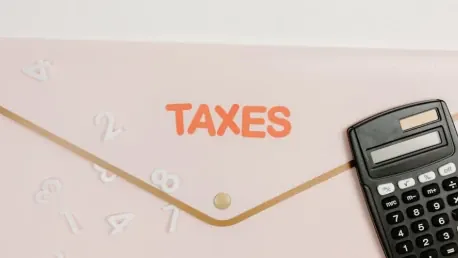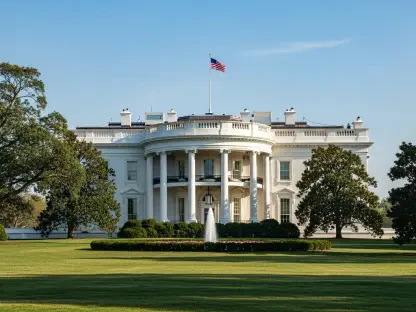The recent parliamentary debate on potential reforms to the council tax system in the UK has sparked significant interest and discussion among lawmakers and the public. Housing Minister Matthew Pennycook faced a barrage of questions from Members of Parliament (MPs) regarding possible changes to council tax, including reforming thresholds, introducing additional tax bands, and conducting property revaluation. However, Pennycook repeatedly sidestepped giving direct answers, promising instead to relay the concerns to Local Government Minister Jim McMahon and hinting at upcoming announcements.
Calls for Public Dialogue on Council Tax Thresholds
Clive Betts’ Suggestion for Public Engagement
During the discussion, Clive Betts (Lab, Sheffield South East) initiated the conversation by suggesting a comprehensive public dialogue on whether existing council tax thresholds are appropriate. He highlighted the regressive nature of the current tax system, where lower-income households often bear a disproportionate burden compared to wealthier individuals. Betts underscored the limited autonomy that UK councils possess in comparison to their European counterparts, suggesting that a reevaluation of the thresholds could address some of these disparities and provide councils with greater financial flexibility.
Matthew Pennycook, however, avoided a direct response to Betts’ suggestion. Instead, he assured that he would communicate Betts’ concerns to Local Government Minister Jim McMahon for further consideration. This evasive maneuver sparked frustration among several MPs, who felt that more direct answers were necessary given the urgency and importance of the issue. The suggestion of public engagement on council tax thresholds nonetheless remains a crucial point of debate, as MPs and constituents alike grapple with the inherent inequalities in the current system.
Emphasis on the Need for Comprehensive Reform
The conversation then shifted to a broader discussion on the need for comprehensive reform of the council tax system. Betts emphasized that any meaningful change would require addressing not only thresholds but also the structure of the tax itself. He argued that the current system’s regressiveness hinders economic fairness and places undue stress on lower-income households. Furthermore, Betts pointed out that the existing tax bands, which have not been updated to reflect modern property values, exacerbate these issues.
Pennycook’s reluctance to provide concrete answers left many MPs questioning the government’s commitment to enacting meaningful reform. The acknowledgment of the need for change, coupled with the promise of future discussions, set the stage for ongoing debates and potential government action in the coming months. The pressure from MPs like Betts reflects a growing consensus that the council tax system requires a thorough review and potential overhaul to ensure it better serves the needs of all citizens.
Queries on Additional Tax Bands and Property Revaluation
John Glen’s Inquiry on Additional Tax Bands
John Glen (Con, Salisbury) sought specific clarification on whether the government would consider introducing additional council tax bands. Currently, the council tax system operates with a limited number of bands, which some critics argue fail to accurately reflect the wide disparities in property values across the country. Glen’s inquiry aimed to address whether more bands could improve fairness and equity in the taxation system by ensuring that those with higher-value properties contribute a proportionate share.
In his response, Pennycook deflected the question back to the issue of thresholds, avoiding a clear stance on the introduction of additional bands. He emphasized that discussions about thresholds were ongoing and that any significant changes would be deliberated as part of a broader review of the system. This lack of direct response indicated that while the idea of additional bands might be on the table, concrete details and decisions were still pending, leaving MPs and the public awaiting further clarification.
Bob Blackman’s Question on Property Revaluation
Similarly, Bob Blackman (Con, Harrow East) raised the issue of property revaluation, questioning whether the government planned to undertake a reevaluation of properties to reflect current market values. The existing council tax bands are based on property valuations from the early 1990s, rendering them outdated and potentially inaccurate given the significant changes in the housing market over the past few decades. Blackman’s inquiry underscored the need for property revaluation as a step towards ensuring a more equitable distribution of the tax burden.
Pennycook’s response hinted at the possibility of upcoming announcements regarding property valuations, yet he stopped short of providing any detailed plans or timelines. This evasive approach left many MPs and observers feeling that critical questions remained unanswered. The prospect of property revaluation, while necessary in the eyes of many, thus continued to be an unresolved matter within the broader debate on council tax reforms. The government’s stance on this issue is expected to become clearer with future announcements and policy developments.
Perspectives on Broader Property Tax and Financial Pressures on Councils
Dame Harriet Baldwin’s Reference to a Broader Property Tax
Dame Harriet Baldwin (Con, West Worcestershire) brought a different perspective into the mix by referencing the preferences expressed by the Chancellor and the International Monetary Fund (IMF) for replacing the existing council tax system with a broader property tax. She highlighted the efforts in Wales, where properties have undergone revaluation, as a potential model for the rest of the UK. Baldwin’s comments suggested that a shift towards a more comprehensive property tax might address some of the inherent issues within the current council tax framework.
However, Pennycook declined to speculate on any fundamental changes to the tax system. He maintained that the government’s position on broader property tax reforms would be revealed early next year, leaving MPs and stakeholders in anticipation. The suggestion of a broader property tax marks a significant departure from the existing system, potentially offering a more progressive approach to local taxation. Yet, the lack of immediate clarity from the government suggests that any transition would be thoroughly debated and carefully implemented if pursued.
Lee Dillon’s Concerns on Financial Pressures
Newbury MP Lee Dillon (Lib Dem) raised concerns about the growing financial pressures on local councils, exacerbated in part by the current council tax system. Dillon highlighted the challenges faced by local authorities in balancing budgets and delivering essential services amidst constrained resources. He questioned how the government planned to support councils in navigating these financial difficulties and whether reforms to the council tax system would provide any relief.
Pennycook responded by reaffirming the government’s commitment to maintaining single-person discounts and local council tax support schemes. While these measures provide some assistance, MPs like Dillon argue that they fall short of addressing the broader financial pressures faced by councils. The conversation around council tax reforms, therefore, is not only about fairness and equity for taxpayers but also about ensuring that local authorities have the resources and flexibility needed to meet their obligations and support their communities.
A Cautious Approach and Future Considerations
Highlighting Government Officials’ Cautious Stance
Throughout the parliamentary discussion, the cautious approach adopted by government officials towards potential reforms was increasingly evident. Pennycook’s reluctance to provide concrete answers or detailed plans highlighted a cautious and measured stance, reflecting the complexity and sensitivity of the issue. The emphasis was placed on ongoing discussions and forthcoming announcements, suggesting that any substantial changes to the council tax system would be carefully considered and thoroughly debated.
This cautious stance, while frustrating to some MPs, underscores the intricate balance that government officials must strike in reforming a system that impacts millions of households and the financial health of local councils. The need for a comprehensive review that addresses thresholds, bands, and property valuation reflects the multifaceted nature of the challenge. The government’s commitment to detailed discussions and future announcements hints at the potential for meaningful reforms, though specifics remain to be seen.
Anticipation of Upcoming Local Government Finance Settlement
The recent parliamentary debate on potential reforms to the council tax system in the UK has generated significant interest and discussion among lawmakers and the public alike. During the session, Housing Minister Matthew Pennycook faced a series of pointed questions from Members of Parliament (MPs) concerning possible changes to council tax. These changes included reforming tax thresholds, introducing additional tax bands, and the possibility of conducting a property revaluation.
Despite the numerous questions, Pennycook consistently sidestepped providing direct answers. Instead, he promised to convey the MPs’ concerns to Local Government Minister Jim McMahon. Pennycook also hinted that there would be imminent announcements regarding the matter but did not provide specific details. This evasive approach has left many MPs and members of the public eager for more concrete information and clarification on the future of the council tax system. The debate continues to be a hot topic, with expectations growing around potential upcoming changes and their implications for taxpayers across the UK.









